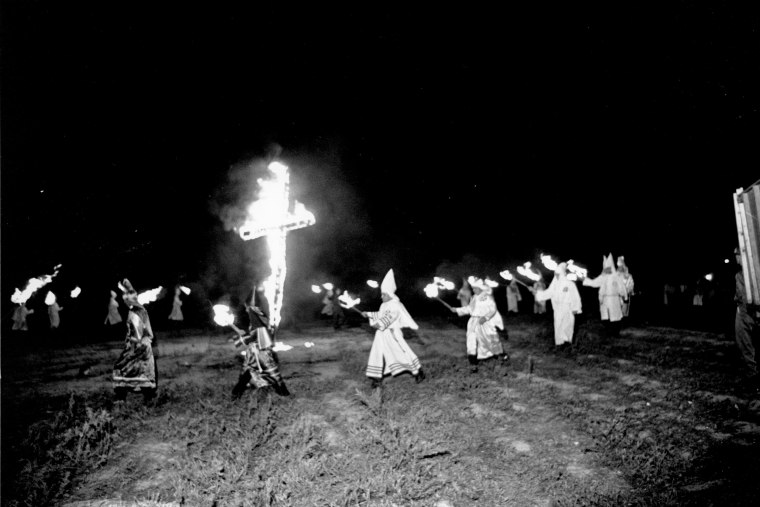Easter Sunday, when Christians around the world celebrate the resurrection of Jesus Christ, is also —and not accidentally — a tragic anniversary in American history.
On Easter Sunday 1873, 145 years ago, hundreds of white men in Colfax County, Louisiana, took up arms after Sunday morning worship services and marched to their county courthouse to reclaim control of the local government from representatives who had been democratically elected by black and white people voting together. Standing their ground in the hopes that federal reinforcements would arrive in time, every defender of democracy at the Colfax County courthouse was murdered.
White Democrats across the South took their cue from this violent coup d’etat and developed the “Mississippi Plan,” which capitalized on the narrative of white fear to suppress black political power in the presidential election of 1876 and overturn Reconstruction through a compromise with Republican President Rutherford B. Hayes. This white supremacy campaign also sometimes goes by another name: the “redemption movement.”
Faith stories have power to catalyze movements for good as well as for evil in our world.
A white son of the South, I didn’t learn this history when I was growing up. Without question, I got up before sunrise every Easter morning and went out to the graveyard behind our Southern Baptist church to hear the redemption story of how Jesus died to save us from our sins — and then rose again, despite all odds. Redemption was our story of hope. As a child, I couldn’t have imagined it becoming a justification for terrorism.
But faith stories have power to catalyze movements for good as well as for evil in our world. Any serious attempt to grapple with American history must acknowledge that faith has played a role on both sides of our major struggles — among the abolitionists and the defenders of slavery in the 19th century; among civil rights activists and segregationists in the 1950s and 1960s.
And what is true about our past is at play in the present: Christianity’s redemption narrative is being deployed again today toward disparate visions of what kind of nation America should become. As a white evangelical in this land, I can’t celebrate Easter in 2018 without working to reclaim the concept of redemption from the forces that attempt to use my faith and its founding stories to defend white supremacy.
Christianity’s redemption narrative is being deployed again today toward disparate visions of what kind of nation America should become.
Since he first emerged as a viable presidential candidate in the spring of 2016, Donald Trump seemed an obvious contradiction to the family values that evangelicals espouse. Yet exit polls suggest around 80 percent of white evangelicals voted for him in 2016 — a higher percentage than George W. Bush or Ronald Reagan ever won. Over a year later, as the president’s approval ratings hover around 40 percent among the general public, 78 percent of white evangelicals still say they support Trump. Clearly, this is a matter of faith for an overwhelming majority of white evangelicals.
Trump’s own slogan — “Make America Great Again” — is a redemption story in a nutshell. It assumes a fall from which must now be saved. It may be tempting for some to point to 2008 and hang this white anxiety on America’s first black president. But Barack Obama, as a person, remains too popular among all Americans for this theory to be true. No, the redemption narrative that gave us Trump is not so much about Obama as it is about the black, brown and younger white coalition that made Obama’s presidency possible. No one stated this white anxiety more clearly than Michele Bachmann, in an address to the Values Voter Summit before the 2016 election. “It’s a math problem of demographics,” she noted, claiming “this is the last election when we even have a chance to vote for somebody who will stand up for godly moral principles.”
As in Colfax County 145 years ago, faith didn’t moderate white evangelicals’ desire to hold onto political power in 2016; it fueled their resolve to maintain control by any means necessary.
Faith didn’t moderate white evangelicals’ desire to hold onto political power in 2016; it fueled their resolve to maintain control by any means necessary.
But this Easter in America, we also have the opportunity to recall a very different redemption narrative. Rooted in the love ethic of Jesus and the Baptist church that raised him, the Rev. Martin Luther King, Jr. worked tirelessly with the Southern Christian Leadership Conference in the 1960s to expand civil rights, voting rights and human rights, both in the South and across the nation. SCLC’s slogan was also a redemption narrative: “To save the soul of America.”
Like Jesus, King too was murdered. King died 50 years ago this week while seeking to build a cross-racial coalition to address inequality in America through a Poor People’s Campaign. In a redemption story, every crucifixion demands a resurrection. We who believe in love and justice in America this Easter must reclaim redemption from those who would use it to prop up white nationalism and bigotry. To fail to do so is not only to dishonor the memory of King and the defenders of democracy in Colfax County; it is to reject the life and witness of the resurrected Jesus, whom Christians worship today.
Jonathan Wilson-Hartgrove is the author of "Reconstructing the Gospel: Finding Freedom From Slaveholder Religion." He serves on the National Steering Committee of the Poor People's Campaign: A National Call for Moral Revival.
